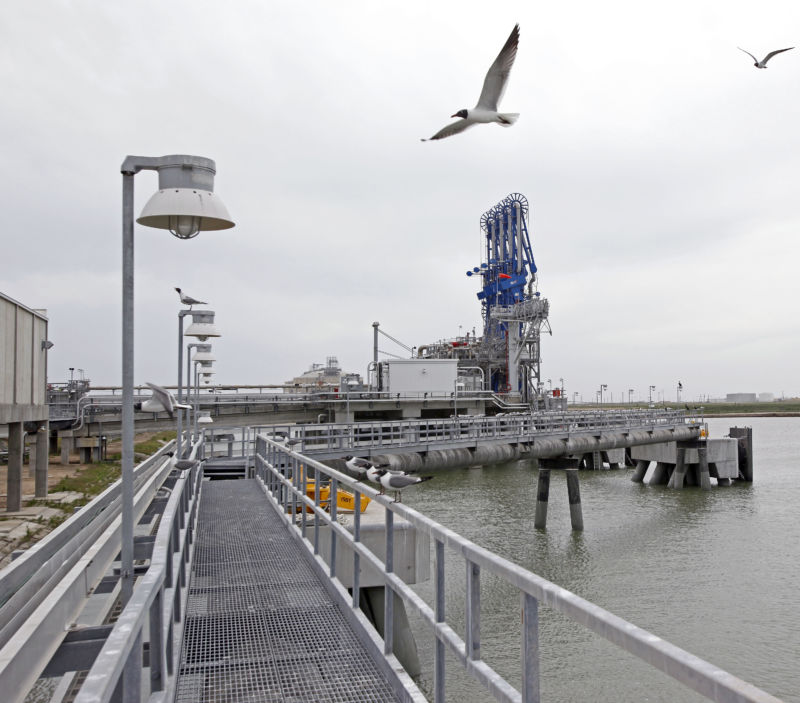
Enlarge (credit: Photo by Craig Hartley/Bloomberg via Getty Images)
Call it a rebranding of "energy dominance."
In a press release published on Tuesday, two Department of Energy officials used the terms "freedom gas" and "molecules of US freedom" to replace your average, everyday term "natural gas."
The press release was fairly standard, announcing the expansion of a Liquified Natural Gas (LNG) terminal at the Freeport facility on Quintana Island, Texas. It would have gone unnoticed had an E&E News reporter not noted the unique metonymy "molecules of US freedom."
DOE Assistant Secretary for Fossil Energy Steven Winberg is quoted as saying, "With the US in another year of record-setting natural gas production, I am pleased that the Department of Energy is doing what it can to promote an efficient regulatory system that allows for molecules of US freedom to be exported to the world.”
Also in the press release, US Under Secretary of Energy Mark W. Menezes refers to natural gas as "freedom gas" in his quote: “Increasing export capacity from the Freeport LNG project is critical to spreading freedom gas throughout the world by giving America’s allies a diverse and affordable source of clean energy."
Slate notes that the term "freedom gas" seems to have originated from an event with DOE Secretary Rick Perry. Earlier this year, the secretary signed an order to double the amount of LNG exports to Europe, saying, “The United States is again delivering a form of freedom to the European continent. And rather than in the form of young American soldiers, it’s in the form of liquefied natural gas.”
A reporter at the order signing jokingly asked whether the LNG shipments should be called "freedom gas," and Perry said, "I think you may be correct in your observation."
If the DOE is still running with the term as a joke, then the wit in the Energy Secretary's office is bone dry. Ars contacted the DOE to see if "freedom gas" and "molecules of US freedom" are now going to be standard in department communication with the public. We are also curious if any potential drop in LNG exports could result in patriotism bloat. The DOE has not responded, though we'll update the story if it does.
According to the US Energy Information Administration (EIA), Canada, Mexico, South Korea, and Japan were the top importers of freedom gas last year. China, India, and the UK buy a smaller number of molecules of US freedom.



